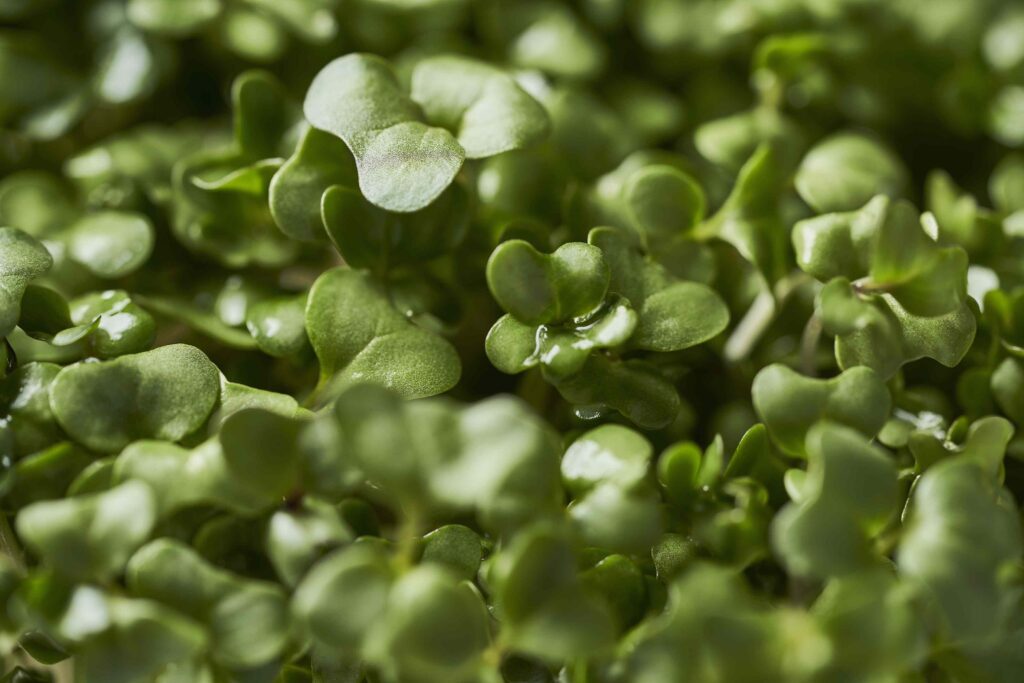Sulforaphane is a compound made from chewing, cutting, or chopping cruciferous vegetables like broccoli, cabbage, and cauliflower—and it’s also available in supplement form. Here’s how adding sulforaphane to your diet could affect your body.
Sulforaphane has been studied for its potential effects on cancer. Ways that it may protect against cancer include:
- Lowering inflammation: Sulforaphane activates a protein called Nrf2, which increases antioxidants that protect cells from inflammation. It also blocks NF-κB, which increases inflammation.
- Neutralizing toxins: The compound is a source of antioxidants, which counter the harmful effects of unstable atoms called free radicals.
- Protecting DNA: The compound has been shown to protect DNA against harmful mutations that lead to cancer.
- Slowing tumor growth: Sulforaphane may stop cancer cells from dividing, which slows the spread of tumors in your body.
A 2015 clinical trial found that adults with prostate cancer who took daily sulforaphane supplements for six months prevented or delayed recurrence by 86%.
Sulforaphane supplementation may also lower the risk of breast and lung cancer. However, more research is needed to confirm these benefits.
Every whole food that promotes sulforaphane production naturally supplies nutrients that support heart health. For example, the antioxidants in cruciferous vegetables may lower heart disease risk.
Cruciferous vegetables are also a source of fiber. Eating enough fiber has been shown to lower the risk of heart disease.
A 2017 study found that people with type 2 diabetes had significantly lower blood sugar levels after supplementing with broccoli sprouts daily for 12 weeks.
Despite this promising finding, researchers caution that more studies are needed.
Sulforaphane may protect nerve cells against brain disorders like Alzheimer’s disease and Parkinson’s disease. It is thought to activate antioxidant pathways in the body.
More human research is needed, but regularly eating cruciferous vegetables may protect your brain and overall health.
Cruciferous vegetables do not contain sulforaphane. The molecule is made when you cut, chop, or chew vegetables that contain the compound glucosinolate.
Foods with glucosinolates include:
- Arugula
- Bok choy
- Broccoli, particularly broccoli sprouts
- Brussels sprouts
- Cabbage
- Cauliflower
- Kale
- Radish
- Turnips
- Watercress
How much sulforaphane you absorb from these foods depends on how you prepare them. You will not absorb as much from cooked vegetables as you will from raw ones.
Try lightly steaming your vegetables for a few minutes. Avoid boiling, microwaving, or pressure cooking, which can get rid of 90% of glucosinolates.
It is unclear if sulforaphane supplements are safe to take for long periods. Dosages in clinical settings have ranged from 20-40 milligrams per day for up to six months.
Supplements usually deliver a much higher dose than found in foods, but they lack nutrients like antioxidants and fiber.
Just because sulforaphane is naturally created from foods does not mean it does not pose risks.
Sulforaphane may be unsafe for people with conditions like
- Autism spectrum disorder (ASD): A small number of people with ASD have reported seizures after taking sulforaphane. It is unclear if the supplements were a direct cause.
- Iodine deficiencies: Eating a lot of raw cruciferous vegetables may cause hypothyroidism (underactive thyroid) in people with an iodine deficiency.
- Irritable bowel syndrome (IBS): Cruciferous vegetables may cause digestive discomfort in people with IBS. They may cause bloating, cramps, and diarrhea.
Potential Drug Interactions
It is unclear whether sulforaphane interacts with medications or supplements. Talk to a healthcare provider before you start sulforaphane supplements if you take other drugs.
Can You Take Too Much?
There is not enough research to determine what amount may lead to side effects or overdose. You are very unlikely to get too much sulforaphane from the foods you eat.
Sulforaphane supplements may cause side effects, especially in higher dosages, such as:
- Digestive discomfort
- Heartburn
- Nausea
Sulforaphane is a compound naturally made when you prepare or eat broccoli, cauliflower, and other cruciferous vegetables. It may offer antioxidant and anti-inflammatory benefits.
Research on sulforaphane supplements is ongoing. Try adding cruciferous vegetables to your plate for sulforaphane and other essential nutrients.


